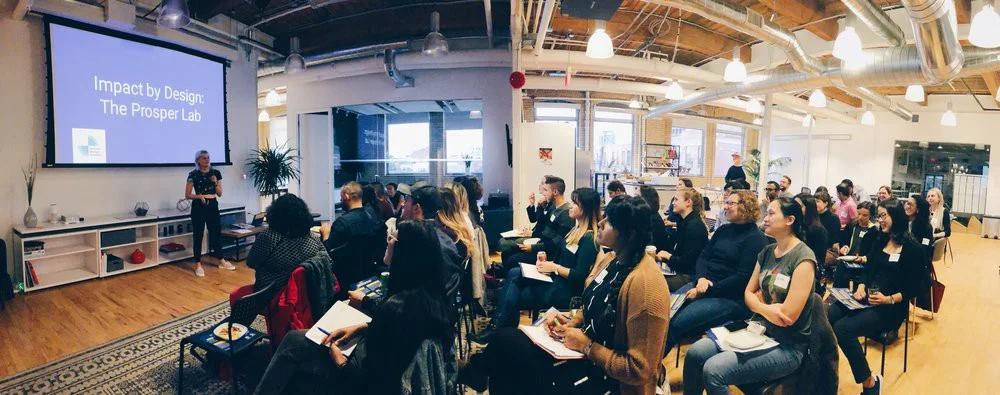#64 The Mighty Designer
I first met Linn Vizard nearly ten years ago when I was invited to speak at Designing Dublin. I vividly remember her curiosity and excellent Irish accent. Now, Linn is an independent designer in Toronto, doing a stellar job of asking difficult questions about our practice and the industry. Her twitter feed is a great place to be. She is the co-founder of Service Design Toronto (where this year’s SDN Network conference will be) and used to be Director of Design Strategy at Bridgeable.
Here’s what Linn has to say…
What’s the biggest lesson you’ve learnt over the last year?
Wow, this is such a hard question because I feel like I’ve learned so much over the last year. It’s been a really transformational year for me. A few specific things come to mind:
Trusting my gut more: I’ve been working on listening to myself and connecting with how things feel. Learning to observe and name emotions has been a long and ongoing journey. My therapist once told me that emotions are simply data from the organism, which was revelatory for me! It allowed me to see my feelings as another source of information rather than something to suppress or barrel my way past. In general, I think there is huge opportunity for design and designers to connect with humans as whole people. Design tends to be very rooted at the head level, how do we move beyond this to also connect with the heart level in our work? This requires us to be willing to undergo deep personal work and transformation.
The importance of embodied being: Connected to learning to trust my gut more, I’m also learning a lot about coming home to my body. Despite all of the technological progress and how ‘advanced’ our society can seem, we are physical, organic beings, and there is so much wisdom in the body. (I recently watched a mind blowing developmental biology talk that touches on somatic memory). Physical activity like dance and yoga are more and more of a priority in my life, and this year I also started powerlifting. It’s been super rewarding to see what happens being quite heavily engaged and invested in something completely different from design, and also completely physical. It made me realise how much of my life, social circle and identity has been tied up in design, and I’m excited to expand that. It’s also an incredibly feminist thing to take control of your body, and to learn how to do things you never thought you could, like lifting over 100kgs. The people and women I’ve met through this process have also been so awesome.
Learning how (and when) to say no: Working on boundaries has been huge this year. Walking away from things that aren’t good for you, that don’t make you feel good, being gracious in declining things that aren’t a good fit, and being really selective about what to say yes to in all aspects of life are lessons I’m learning over and over. I’ve been reflecting on how in some ways it’s also a transitional career phase, initially you are hustling and saying yes to everything. After 10 years, how do you start saying no to some things?
What’s your burning question of the moment?
Again, I definitely have several! Burning questions are often the things that shape the work I take on, the talks I give or the writing I do. They are a driving force in how I figure out what to try next.
What does ‘implementation’ in service design look like? I’ve been grappling hard with the question of what it looks like to ‘implement’ service design work. (We are also navigating what our role should be in that, which is another question) For many designers, we want to see our work live in the world, to make ‘real world’ changes. I’ve found that service design work (especially consulting) can be lacking in getting to those outcomes, and I think we are just at the beginning of developing our capabilities to create meaningful outcomes from the work. How do we think about the outcomes of our work when we are no longer (always) creating tangible objects as designers? This was very much a burning question this year, that I tried to explore in a talk I gave called The Material of Outcomes.
How do we do better on accessibility and inclusion within service design? I’ve been shocked at how little discourse there is around this. It has improved a bit, this year I’ve seen some great contributions, especially from people like Cat Mccauley, folks at the Scottish government, and the GDS team, for example. However, in my experience, inclusion and accessibility are often looked at from a digital perspective, and service design is so immature in considering how to make truly inclusive services across all channels and touchpoints, and in considering how to make our process inclusive. There is such a very long way to go for us as practitioners. This is one of the topics I want to continue exploring and learning from people about.
How does enough feel? What does it look like? Both for me personally as an individual and at a societal level. Our whole system is organized around hyper-growth, capitalism and technological process. It’s hurting people. We are so focused on up-and-to-the-right thinking that we are losing sight of so many of the things that are actually important to human beings, and we are ruining the planet. How can I create a way of living that is intentional about what is enough for me, and contributes to greater collective well-being, environmentally, socially, and emotionally? It’s very difficult to find answers to these questions when we are complicit in the web of these systems, and we have to at least try.
What’s the most inspiring thing you’ve seen/ heard/ read in the last year?
I’m blown away by the work my friends Chenny and Markus did with a project called the Prosper Lab. What I love about this project is that it is an amazing example of a tangible way to use ‘design’ for ‘good’. There’s so much rubbish going around about ‘design having an impact’, I love seeing people rolling up their sleeves and doing it for real.
Why We Sleep is an amazing book covering all of the latest understanding about sleep. It’s fascinating (did you know that caffeine works by blocking sleep hormone receptors?), makes you appreciate sleep so much, and is really good for putting you to sleep!
My Best Breakup is a great podcast exploring various types of change and loss, with the idea that good things start with an ending. The host, Maeve Higgins, is a hilarious Irish comedian, and I love the concept around ‘breaking up’ with things being an important part of how we grow.
Though I don’t love the ableist language in the title, ‘It Doesn’t Have to be Crazy at Work’ is one of the most sense-making, intelligent business books I’ve read in a long time. Straight talk about not buying into the bullshit about hyper productivity, burnout as a badge of honour, and the ridiculous expectations of what it means to ‘succeed’ in work and business in our culture.
Climate activist Greta Thunberg has blown me away. Listening to her speech at the UN Climate Change Conference COP24 made me cry. What an inspiring person.
I laughed so much at the Inquiring Minds podcast episode ‘Does it Fart’ about animal flatulence, and I learned so much. I also really enjoyed the animal zombie-ism episode and the one about what it’s like to discover a dinosaur.
Finally, a friend invited me to see Taylor Swift’s Reputation Tour. I’m not particularly a Swift fan per se, but I’d never been to a massive stadium show and the experience and stage/production design was next level.
What would be your one piece of advice to students out there?
The thing that I always advise students to do above all else is to start connecting with people and building your network. That’s the thing I really wish I had done as a student, and I think it’s the best head start you can give yourself. Follow people on Twitter, get out to in person meet ups and events, find ways to (respectfully!) build connections with curious, engaged people who are grappling with similar questions to yours.
The other thing I would tackle on is that we are all always figuring it out. It’s easy to think that people you admire ‘have it figured out’ or ‘have the answers’. It can be a bit brutal to realise that your ‘heroes/heroines’ are just people too, but the sooner you do, the easier it will be to relate to people and the gentler you will be with yourself and others.
You can read the rest of the profiles here. If you’d like to nominate someone or yourself to be part of this interview series please tweet me @redjotter. I encourage people who identify as women and people of colour to nominate themselves and I’d love to feature people who aren’t based in London.
#59 The Shoutout Network Designer
#57 The Digital Delivery Manager Mum
#56 The Designer of Public Services in the Digital Age
#55 The Little Village Designer
#53 The Collaboration Designer
#51 The Virtual Reality Designer
#49 The in-between Design Researcher
#46 The Ethical Fashion Designer
#44 The Designer of Communities
#37 The Thinking Clearly Designer
#34 The Designer of Vulnerability
#31 The Service Design TV Host
#28 The Human Interaction Designer
#26 The Design Writer and Doer
#23 The Behavioural Researcher
#21 The Local Government Designer





